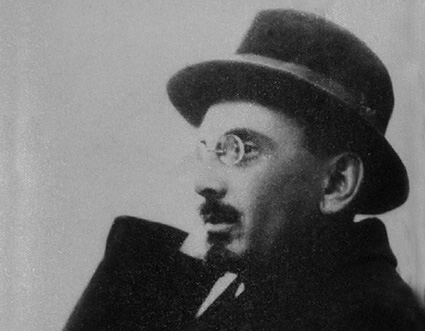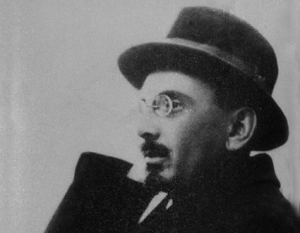Book Review: Kvachi Kvachantiradze
(Kvachi Kvachantiradze by Mikheil Javakhishvili, translated into English by Donald Rayfield and published by Dalkey Press in 2014.)
If you want to breathe in the essence of Georgia in literary form, Kvachi Kvachantiradzeis a good place to start. Georgian author Mikheil Javakhishvili’s magnum opus is a boisterous picaresque bringing to life one of the country’s most compelling fictional characters.
The main character is Kvachi Kvachantiradze, an anti-hero evoking other unwholesome literary rogues like Thackeray’s Barry Lyndon and Balzac’s Lucien de Rubemprй. Kvachi is the perfect picaresque protagonist: born to a family of innkeepers in dusty, provincial Georgia – “on a deceitful, false, and treacherous day” – he is destined by hook or by crook to become a great man.
For Kvachi’s father Silibistro that means becoming a titled aristocrat. For our amoral anti-hero, it means amassing fame, fortune, and women in unlimited quantities: “Life is a struggle. What you can grab from it is yours, what you can’t is lost.”
Kvachi spends his youth occupied in small-time swindles. It is here the reader realizes that the boy from Samtredia (a town in Imeretia in western Georgia, a region famed for its people’s hard-drinking, hot-blooded ways) is less lovable than supposed.
He cynically cons his elderly landlady out of her home, leaving the poor woman penniless. Eventually Georgia grows too small for the larger-than-life Kvachi. He makes way for Odessa.
There his misdeeds become darker. He attempts to rape a classmate and impregnates another young girl, only to cruelly abandon her. Later exploits in Saint Petersburg, Paris and London see Kvachi commit countless murders and scams, including blackmailing a noblewoman out of her entire fortune.
Kvachi’s misdeeds are appalling, but some are too whimsical to be easily condemned. One of his first swindles is selling the same grand piano to three different buyers. Later he and his men rob a bank by posing as a crew filming a bank robbery scene.
The novel plays upon Russian stereotypes of the shifty, uncouth Caucasian. Kvachi and his circle of friends Beso, Chipi, Jalil, Ladi, Sedrak, and Gabo spend most of their time exacting revenge on the Russian people who have so wronged Georgia. In the process they themselves become crude caricatures: liars, thieves, murderers, and blackmailers.
Midway through the novel, Kvachi and his band of ruffians are living in Paris, up to their elbows in cash and women. Here they are given the chance to ditch the double-dealing, move back to Georgia and become honest men. Only Gabo and Sedrak accept the offer:
“Gabo and Sedrak had reverted to being Asiatics, they lagged behind the world and lost their civilized habits … On the other hand, they were living in their own country, breathing its air, ploughing its soil and, feeling and sensing its mystery, they suffered its griefs and enjoyed its delights.”
Like any great historical epic, Kvachi does more than entertain us with tales of a charismatic fraudster. Javakhishvili uses the main character to chart Georgian and Russian history. Kvachi is born in 1890, comes of age during revolutionary upheaval, and later becomes a member of Grigori Rasputin’s inner circle.
Eventually he finds himself serving in the Russian army, fomenting revolution against the Tsar, and on the run from the Bolsheviks. He remains the same through it all: without integrity or scruples, always looking to “crack a new big job” without ever stopping to ask why.
The protagonist’s persona is made of hot air. He goes by the false name of Prince Napoleon Apollonovich Kvachantiradze, his family’s aristocratic title is begotten by purchase, not pedigree, and his public image is constructed by an army of paid journalists.
Kvachi’s self barely exists, but it speaks to him while he sits in the Peter and Paul Fortress, awaiting execution for sabotage against the Russian army:
“You still don’t recognize me: I’m Kvachi Kvachantiradze, Silibistro’s son.”
“Don’t be silly. I’m Kvachi.”
“I’m Kvachi Kvachantiradze, and I’m not fake Ashordia gentry, or a fake prince, or a fake lord in waiting, nor a pickpocket, pimp, or traitor.”
This tale is a biting social criticism. Only an amoral man like Kvachi could make a fortune in the corrupt, bloodstained Russia of the Tsars and Bolsheviks. The author uses the title character to express his own views on the revolution:
“Brother will attack brother, father – son, and they will not be sated by one another’s blood. The flames from the fires will reach the heavens, rivers will run red, and the groans of the dying with deafen the land. A new earth will be born: alien and unfamiliar, strange and puzzling.”
The book’s most beautiful passage doesn’t concern its namesake at all. Javakhishvili tells the story of Russia’s history through a parable of two brothers, sons of Russia’s Mongol mother and Scythian father. Ivan is swarthy, austere, and Asiatic; Peter is dainty, self-indulgent, and European. Their personal conflict is made to represent the revolution.
Javakhishvili himself was a victim of that terrible revolution, declared an “enemy of the people” and executed in 1937 for speaking out in support of a writer who chose suicide rather than denounce his counterparts. He originally intended the story to be published in serial format, which explains the book’s peculiar layout: a stream of short chapters, each named for the main character’s present exploit.
Ultimately, the ill-fated author plays a cruel game with the reader, enchanting us with Kvachi’s charm just to bring us crashing back to Earth with his shocking depravity. This libertine is anything but worthy of celebration. But this much is certain: Kvachi Kvachantiradze is a character who can neither be ignored nor forgotten.
Joseph Larsen











